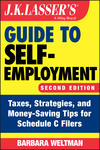Tax Free Reimbursements of Expenses? Here’s How
Typically, an employer reimburses employees for company travel and entertainment expenses. When they do so under an accountable plan, the reimbursements are not taxable to employees (or even reported on their W-2 forms). Accountable plans are not limited to travel and entertainment (T&E) expenses; they can be used to reimburse employees for the tools of their trade.
Take the following case. An employer hired technicians to repair tools and equipment sold by the employer to customers. Employees were required to provide their own tools for this repair work and to store them on the employer’s premises; they could not use them for other work. The employer reimbursed employees’ tool expenses each year as well as other work-related supplies, training, and certification necessary to work as technicians. Employees had to show proof of their tool expenses to their employer.
The IRS ruled that this arrangement qualified as an accountable plan so that reimbursements would be tax free to employees. The arrangement met the three requirements for an accountable plan:
- The expenses must have a business connection-here, they are incurred solely for the benefit of the employer’s repair work.
- There must be adequate substantiation for the reimbursed expenses-here, employees could obtain reimbursement only if they submitted proof of their expenses.
- Excess reimbursements must be returned to the employer within a reasonable time-here, reimbursements were limited to actual expenses, so there was no excess involved.
In the past, the IRS had nixed tool reimbursement arrangements that paid a fixed sum without regard to the actual cost of the tools; the reimbursements amounted to additional compensation (Rev. Rul. 2005-52). Last year, the IRS set up a team to address significant concerns with certain Employee Tool and Equipment Plans, sometimes called Service Technician’s Tool Reimbursement Plans, that purport to be “accountable plans”; there has been no guidance yet from this team.
Source: Letter Ruling 200930029
Defined contribution plan
A retirement plan that pays benefits based on contributions to individual accounts, plus accumulated earnings. Contributions are generally based on a percentage of salary or earned income.



